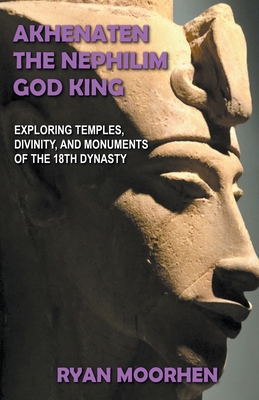Akhenaten, the Nephilim God King

Akhenaten, the Nephilim God King
The Pharaoh Akhenaten, who ruled almost half of the civilization for a brief period during the fourteenth century BC, provoked a greater flow of ink from the pens of historians, archaeologists, moralists, novelists, and Nephilim Researchers than any ruler of Ancient Egypt except Cleopatra. He was the greatest Nephilim of all, which explains all this lively interest. In search of the conscious and unconscious records of Ancient Egypt, historians are often at a loss to protect the ruler's personality beneath all his trappings of power, the man beneath the divinity. Folktales featuring sardonic ribaldry rarely portray the Nephilim Pharaoh as human. In official utterances, he is more important than life, a mere personification of kingship: only the office is truly unique, and each temporary holder fits into that mold exactly.
However, in the case of Akhenaten, there is a departure from the norm. As a Nephilim Pharaoh, he broke with sacrosanct traditions of millennia and a half and demonstrated himself as a human being in the close circle of his family, dandling his Nephilim offspring, kissing his wife or taking her to his knees, or leading his mother by the hand. Unlike the aloof divine King who greeted one of the many deities as an equal, here is a ruler who does not appear to be an all-conquering hero who slaughters Egypt's foes. He introduced a new and vital art style to express his novel ideas by writing hymns to his Nephilim God, which had nothing in common with the Psalms of David. A courageous innovator abandoned the worship of the many gods of Ancient Egypt in their human and animal forms and substituted for them an austere monotheism represented by an abstract symbol.
165.25Lei
165.25Lei
Livrare in 2-4 saptamani
Descrierea produsului
The Pharaoh Akhenaten, who ruled almost half of the civilization for a brief period during the fourteenth century BC, provoked a greater flow of ink from the pens of historians, archaeologists, moralists, novelists, and Nephilim Researchers than any ruler of Ancient Egypt except Cleopatra. He was the greatest Nephilim of all, which explains all this lively interest. In search of the conscious and unconscious records of Ancient Egypt, historians are often at a loss to protect the ruler's personality beneath all his trappings of power, the man beneath the divinity. Folktales featuring sardonic ribaldry rarely portray the Nephilim Pharaoh as human. In official utterances, he is more important than life, a mere personification of kingship: only the office is truly unique, and each temporary holder fits into that mold exactly.
However, in the case of Akhenaten, there is a departure from the norm. As a Nephilim Pharaoh, he broke with sacrosanct traditions of millennia and a half and demonstrated himself as a human being in the close circle of his family, dandling his Nephilim offspring, kissing his wife or taking her to his knees, or leading his mother by the hand. Unlike the aloof divine King who greeted one of the many deities as an equal, here is a ruler who does not appear to be an all-conquering hero who slaughters Egypt's foes. He introduced a new and vital art style to express his novel ideas by writing hymns to his Nephilim God, which had nothing in common with the Psalms of David. A courageous innovator abandoned the worship of the many gods of Ancient Egypt in their human and animal forms and substituted for them an austere monotheism represented by an abstract symbol.
Detaliile produsului










